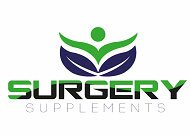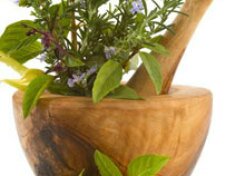You should stop taking all herbal supplements two to three weeks before surgery so your body will have sufficient time to clear these substances from your system. At least, that’s recommended by The American Society of Anesthesiologists (ASA) and other medical professionals.
The reason?
To avoid potential complications and side effects during and after the surgery.
Certain herbal substances are known to influence other medications as well as the surgical procedure. According to studies they could interfere with the post-op healing process as well as cause life-threatening effects during surgery.
The most common complications of the intake of herbal supplements before surgery include:
- increased bleeding risk
- cause of changes in blood pressure
- associated with cardiovascular risk
- prolonged effects of anesthesia
- interaction with other drugs
There are numerous clinical concerns associated with potential herb-drug interactions perioperatively which include cardiac instability, electrolyte imbalances, prolonged bleeding, and excessive sedation ()
But how serious are these risks?
And which herbs are known to cause such adverse effects?

Specifically mentioned by the ASA are;
- ginkgo,
- American ginseng (Panax quinquefolius),
- Asian ginseng,
- garlic,
- St. John’s wort (Hypericum perforatum),
- feverfew (Tanacetum parthenium),
- ginger (Zingiber officinale)
- and kava (Piper methysticum).
In fact they urge patients to tell their anesthesiologist about any medications they are taking, including all vitamins, herbal supplements and other alternative substances
Natural remedies can be potentially harmful too
Herbs have been used for thousands of years. The good ones were kept in use whereas the herbs with adverse effects were discarded.
However, natural, does not equal safe. The use of botanical medicines is not without consequences. Which is why you are taking them in the first place. Because they have an effect.
It is commonly thought that natural means “instigates only positive effects” which is not true.
herbal supplements often have significant medicinal activity as well as potential for adverse effects and drug interactions.
Just as synthetic medicines are not necessarily safe nor withouth side effects some natural substances can have serious adverse effects.
In fact, many modern day conventional drugs were originally derived from plants. White willow bark, and meadowsweet plant for example are the basis for salicylic acid, a precursor of aspirin.
Morphine, the most frequently used narcotic medication, is derived form the opium poppy
Herbs are drugs too. The word “drug” is derived from an ancient word for “root”.
Reasons to be cautious with herbal supplements before surgery.
- Focus on anecdotal evidence. Even though many medicinal herbs have been used for thousands of years, much of what we know about them has been handed down by word of mouth. There’s lots of anecdotal evidence but little controlled scientific evidence backing their health claims.
- Herbs are taken as drugs. Nowadays there’s the trend of taking herbal substances in unnaturally high doses. Legally these concentrated extracts are not drugs but technically they are. We should realize how potent these alternative medicines can be. Mankind has never (as far as we know) taken these class of compounds as a drug which is why we should know more about their advantages, risks, and counteractions with other medications.
- These concentrated extracts are not subjected to the same level of scrutiny as conventional medications by means of FDA evaluation. Herbs, when listed under the “supplement” category by the FDA in the USA do not have to meet the requirement for safety testing, demonstrating efficacy, and even the requirement thorougly labeling the ingredients on the labels. Because of this the risk on side effects increases as quantities and combinations of active agents are unregulated.
According to herbalist Jonathan Treasure:
“Side effects from herbs like ginkgo and St. John’s wort are a new phenomenon caused by concentrating herbs into powders and extracts. When they were taken as teas or tinctures, people didn’t get headaches or tummy aches. Herbs are gentle but they do have profound effects. Today’s pill consumer mentality has in no small part created side effects that you don’t see in normal clinical practice. The more we make herbs like drugs, the more they start having side effects.” source: .
Foods can affect drug metabolism too
One of the most striking examples is grapefruit. Grapefruit (and other citrus fruits) is known to interact with numerous drugs increasing the effect and side effects of said medications. Which may lead to potentially serious complications.
Also broccoli and other types of cabbage contain compounds that affect drug metabolism. In some cases similar in strength as St. John’s wort.
Criticism on the recommendation to stop taking herbal supplements two weeks prior to surgery
According to other medical professionals such as Robert Rountree, M.D. avoiding all herbal supplements before surgery may not be the wisest thing to do. The reason? With most herbal supplements there are only mild side effects. He states that:
reports that ginkgo, ginger, feverfew, and garlic put a patient at great risk for hemorrhage (this is the rationale behind avoiding them preoperatively) are vastly exaggerated.
Opponents of the ASA recommendation basically argue that by avoiding the intake of herbal medication all together you may be throwing away the child with the bath water. Because, when taken in the right dosage, these herbal supplements offer valuable benefits.

It is a fact that specific nutrients are known to play a major role in the healing process. It is commonly accepted that intake of these nutrients in adequate quantities aids the recovery process.
Rountree says ginseng is an example of a misunderstood botanical. According to him it is often claimed that ginseng intake involves the risk elevated blood pressure and bleeding while “the actual evidence that this occurs with significant frequency is sketchy”. He adds that it “may be one of the best available herbs for improving stamina postoperatively.”
A wide range of studies shows clearly that nutrient-deficiency leads to longer healing time after surgery. Research also shows that supplementation can improve wound healing, help build up the body’s defense mechanisms and quicken overall recovery.
Michael Zeligs, M.D., a practicing anesthesiologist in Boulder, Colorado, says,
“Safer anesthesia and surgery requires better information, not a generalized ban on herbal medicines. Botanical medicines, including herbs or extracts, must be evaluated individually, just like prescription medicines.”
I have usually suggested starting the herbs and extra nutrients at least a week before the surgery to help build up the body’s defense mechanisms. It has consistently been my experience that patients who followed these recommendations have tolerated the surgical procedures much better and recovered faster.
Herbal supplements are more popular than ever
More and more people regularly take a herbal supplement such as ginseng, ginkgo biloba, Evening Primrose, garlic, vitamin E, echinacea, valerian, kava, and St. John’s wort.
As a result, concern about the potential complications arising in the perioperative period has increased . Especially when patients are taking complementary medicines.
Over 4 billion people, or 80% of the world’s population, use herbal remedies for some part of their source of primary care ().
Most studies suggest as many as 70% of patients don’t tell their doctors they are taking herbal supplements. Which also has to do with mainstream doctors’ rigid stance on alternative medicine. Most medical professionals still consider botanics and other alternative remedies as quackery or simply do not know much about them.
Reasons for not informing the medical team of herb or supplement intake are: “not important, not medicine, lack of physician understanding, or lack of physician inquiry” (Goldstein et al., ).
Which herbal supplements cause what when taken before surgery
The following herbs are commonly mentioned when speaking which specifically to avoid preoperatively.
- St. John’s wort (Hypericum perforatum) is commonly used to relieve mild depression and anxiety, hence its popular name; herbal Prozac. Used among herbalists mainly as a wound healing substance, aka “wound wort.” In concentrated formulas St John’s wort has demonstrated to interfere with drug metabolism of various drugs used in the during and around surgery. It is generally agreed St. John’s wort should best not be taken for at least a week prior to surgery.
- Ephedra (Ephedra sinica) can significantly raise blood pressure and heart rate and is also best avoided in this context.
- Garlic, ginseng, and ginkgo are linked to cause or worsen bleeding.
- Ephedra is said to cause cardiovascular instability and ginseng to cause hypoglycemia.
- Kava and valerian are linked to increase the sedative effect of anesthetics.
“The exact degree of cause for concern remains unclear. Very few of the huge number of herbal remedies have been formally researched and therefore most information is pooled from case reports and other anecdotal evidence.”





